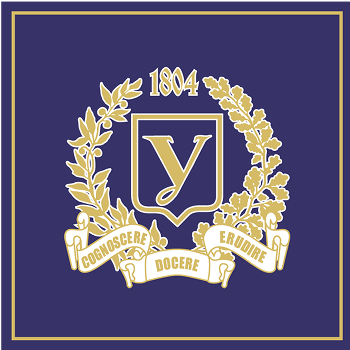waste management
- 2020-34
Classification of Packaging Waste in the Municipal Solid Waste and Preconditions of its Effective Treatment in Regions Of Ukraine
Purpose. Characteristics of the packaging waste group and development of such waste classifica-tion systems on various grounds, as well as the definition of areas for effective management and treatment.
Methods. System analysis, methods of analysis and synthesis, generalization and interpretation.
Results. Studies of the municipal solid waste composition in the cities of Ukraine do not allow to fully quantify the packaging waste, but the approximate content of such waste is 10-20%. Packaging waste can be classified by composition, place of generation and treatment options. The classification of packag-ing waste on the basis of the waste hierarchy is the basis for the developed priority number of directions of such waste management. It is indicated that packaging waste is the secondary material resources of the first stage with the available processing technologies. Increasing the extraction rate of packaging waste from the total municipal solid waste flow is a necessary condition for the efficient use of their resource poten-tial and is possible only in case of waste flow differentiation at the beginning of its life cycle.
Conclusions. The packaging waste group in the municipal solid waste is characterized by a signifi-cant content and variety of composition, which can be classified on various grounds, such as composition, place of generation and approach to management and treatment. In accordance with the developed priority number of waste management directions, it is necessary to create less packaging, and the existing one is effectively recycled and produced from biodegradable materials. In modern conditions, packaging waste is the most common secondary raw material, but due to the extremely low level of separate collection implementation, such waste loses its resource value and pollutes the environment. Therefore, proper organization of sepa-rate collection is the key to effective utilization of packaging waste.
Ключові слова:
- 2020-33
Legal Regulation of Waste Management: Analysis, Problems and Directions of Solution
The development of measures to reduce waste and regulate waste management is an important issue in the field of environmental safety and environmental protection.
Purpose. Analysis of legal regulation of waste management, identification of the main problems and the formation of modern solutions to problems related to waste, based on international experience, current case law of the European Court of Human Rights.
Methods. Theoretical and general scientific (analysis, synthesis, systematization), empirical method (method of comparison).
Results. Based on the results of the study of legal regulation of waste management in Ukraine, the main problems are identified and solutions are proposed based on the analysis of the decision of the European Court of Human Rights and by studying the experience of European countries. It was found that Ukraine has chosen the path of standardization of waste issues on the basis of established norms of the European Union, in particular the Waste Directive and a number of other regulations in this area.
Conclusions. In order to regulate the field of waste management in Ukraine, it is necessary to ensure the gradual and effective implementation of measures enshrined in the National Waste Management Strategy of Ukraine until 2030, to systematize a number of legal acts of Ukraine on waste management and begin their implementation in practice.
- 2019-32
Current State of the Municipal Solid Waste Management and Treatment in Ukraine
Purpose. Review of the current situation in the municipal solid waste management area in Ukraine and outline the possible direction of an effective waste management system organization at the regional level.
Methods. System analysis, mass balance method, generalization and interpretation.
Results. Starting of the European integration process, Ukraine has initiated a number of reforms in the legislative and regulatory sphere of waste management. In particular, the National Strategy of waste management in Ukraine by 2030 was approved; the draft Law of Ukraine “On Waste Management” and others were developed. There are plants for recovering certain types of recyclable raw materials in Ukraine. The model of effective municipal solid waste management at the regional level should be based on baseline conditions: waste composition and available recovery capacity. It is shown that almost half of the municipal solid waste mass is food and garden waste. This means that an effective solid waste management system must be based on the separation and subsequent treatment of such waste, which will allow the achievement of the National Strategy targets.
Conclusions. The municipal solid waste problem of is extremely urgent for Ukraine, because in the conditions of mass increasing and composition complication the main method of treatment remains disposal. Changes in legislation and the existing infrastructure for recycling the most common and resource-intensive categories of recyclables require the introduction of effective municipal solid waste management systems. We believe that to achieve a significant result, it is necessary to pay attention to easily-decomposed organic waste. Development a system for the proper collection and further use of such waste will help to achieve significant performance indi-cators of municipal solid waste potential using.
- 2016-3-4-:26
Improvement of the Municipal Solid Waste Management System in Ivano-Frankivsk City
Purpose. Analysis and development of proposals to improve the system of solid waste management in the city. Ivano-Frankivsk. Methods. Theoretical analysis and synthesis. Results. The problems of solid waste in Ivano-Frankivsk. Analyzed regional strategy for waste management. Topical issue of separate collection at the place of their education and start sorting lines, waste treatment complexes. The basic problem of improving the system of separate waste collection and treatment of solid waste, given the importance of practical embedded system of separate collection of MSW social component. Conclusions. It should be guided by the principles of integrated waste management, the introduction of energy saving technologies and a shift to low-waste produc-tion, which generally improve the environmental situation in Ivano-Frankivsk

